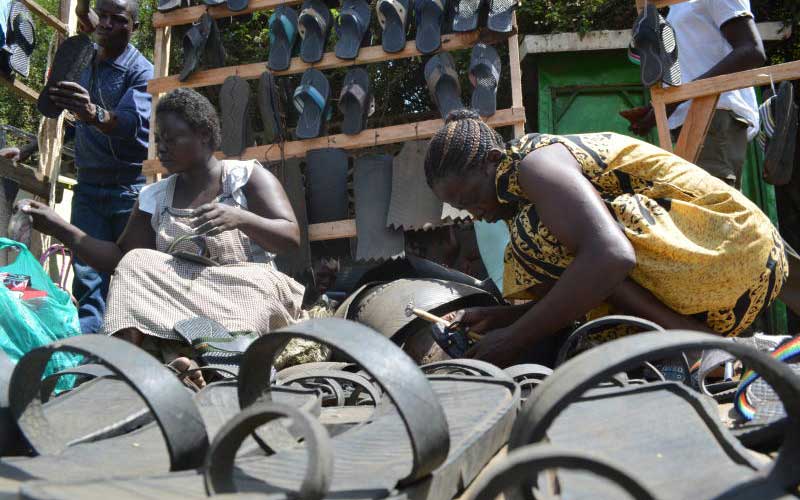×
The Standard e-Paper
Join Thousands Daily

Shoemakers at Kibuye Market in Kisumu County. [Collins Oduor, Standard]
In a January 2020 national address, President Uhuru Kenyatta spoke about the value of small businesses in the country.